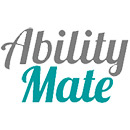We’re trialling the latest 3D printing technology to supply customised orthotics to more kids and adults with disability.


For the past ten years Anna, a long-term resident at Northcott’s Beverley Park accommodation service has been unable to drive her own wheelchair. Until recently that is.
As a participant in Northcott’s Hack-a-Home project which is a global first collaboration between the University of Technology, Ability Mate, Northcott & Northcott Innovation, Anna has been able to use state of the art 3D printers to design and make her own wheelchair toggle.
Incredibly, this has made independent mobility a reality for her for the first time in a decade. And the beauty of it is that she’s done this all for herself. Anna came up with the idea, designed it and now she’s literally been able to see it come to fruition right before her very eyes.
Northcott Innovation’s Clinical Director Samantha Frain says the Hack a Home project; “gives our customers the opportunity to realise their own potential. All we’ve done is set up their environment so they can do exactly that themselves. The project is about engineering our customer’s home environment so they can take control and come up with their own innovative solutions to everyday problems and then create them themselves. This project is about what is important to them. The joy of 3D printing is they can create something and try it and if it doesn’t work it’s OK because you can just recreate it and try again.”
Ability Mate – “Samantha Frain and Liz Forsyth – Northcott Innovation. Not only did they back the concept and commission the project they pumped it full of enthusiasm and momentum. Apart the major logistical task of co-ordinating 30 customers and 30 staff members from 3 separate houses Sam and the Northcott team particularly took the project to a new level by placing a research lens on it. Together we established Human Research Ethics approval and will be officially reporting on the project when the 6 month interviews are completed.”

